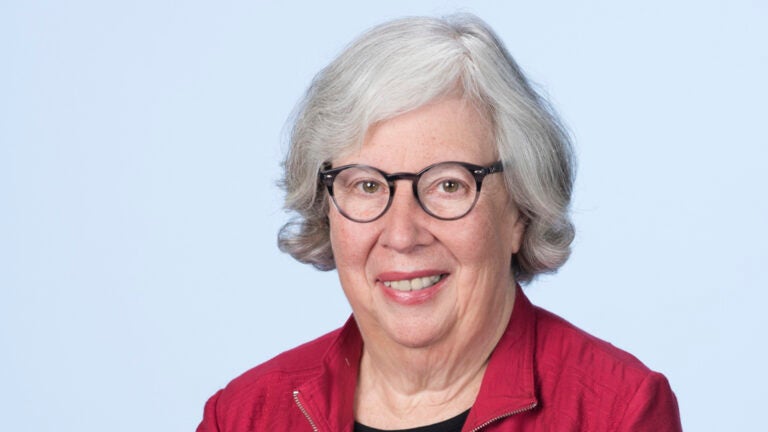
Structural biologist Helen Berman elected to the National Academy of Sciences
Helen Berman, professor (research) of quantitative and computational biology at the USC Dornsife College of Letters, Arts and Sciences, and a member of the Bridge Institute of the USC Michelson Center for Convergent Bioscience, has been elected to the National Academy of Sciences.
The academy is a private, nonprofit institution established during Abraham Lincoln’s term as U.S. President to recognize members’ achievement in science and advise the federal government and other organizations on matters of science, engineering and health policy.
Berman, a Professor Emerita at Rutgers University, joined USC Dornsife in January. She is among 120 members and 23 international members elected to the academy this year.
“This is a wonderful achievement that comes on top of many honors that Professor Berman received for contributions to the field of computational and structural biology,” said Remo Rohs, chair of the Department of Quantitative and Computational Biology and professor of quantitative and computational biology, chemistry, physics and astronomy, and computer science.
“The careers of most cell and molecular biologists have been enriched in amazing ways by the work that Helen has performed. Her co-founding of the Protein Data Bank has created the most important dictionary we use in studying the language of life,” said Scott Fraser, director of Bridge Institute and Provost Professor of Biological Sciences, Biomedical Engineering, Physiology and Biophysics, Stem Cell Biology and Regenerative Medicine, Pediatrics, Radiology, Ophthalmology and Quantitative and Computational Biology. “The field would be decades behind if not for her visionary efforts.”
Berman studies nucleic acids, such as DNA and RNA, and how proteins interact with them. She also studies collagen, a protein found throughout the body that provides structure and strength to muscles, bones and skin as well as the tissues that connect them.
She says she’s driven to pursue her research by a love of learning and discovery, and she tries to foster that drive in others, as well. “In my work, I try to balance time between conducting my own research with ways of enabling scientific discovery by others.”
She co-founded the Protein Data Bank archive, an international archive that stores all experimentally determined structures of molecules and their complexes. The PDB enabled the important, artificial intelligence-driven breakthrough, AlphaFold. Developed by Google’s DeepMind and openly available to the scientific community, AlphaFold can predict the three-dimensional structures or folds of all existing proteins using their amino acid sequence.
“This work would not have been possible without Helen’s groundbreaking contributions,” Rohs said.
Berman has also pursued an interest in sharing her work with the public through film and digital arts. She was executive producer of the documentary series Target Zero, which uses high-quality animation to illustrate how anti-HIV drugs work. At USC Dornsife, she is contributing to the World in a Cell project, a collaboration between the Bridge Institute and the USC School of Cinematic Arts that uses virtual reality to provide a view of the inside of a pancreatic beta cell, where insulin is made.
“Scientists need to analyze and weigh in on issues as they relate to the public good,” she said. “We have a responsibility to help educate not only our students but the public at large.”
Renowned among her peers, Berman is a member of the American Academy of Arts and Sciences, and a fellow of the American Association for the Advancement of Science and the International Society for Computational Biology among other organizations. She is the recipient of numerous awards including the Benjamin Franklin Award for Open Access in the Life Sciences, the Distinguished Service Award from the Biophysical Society and the DeLano Award for Computational Biosciences from the American Society for Biochemistry and Molecular Biology.